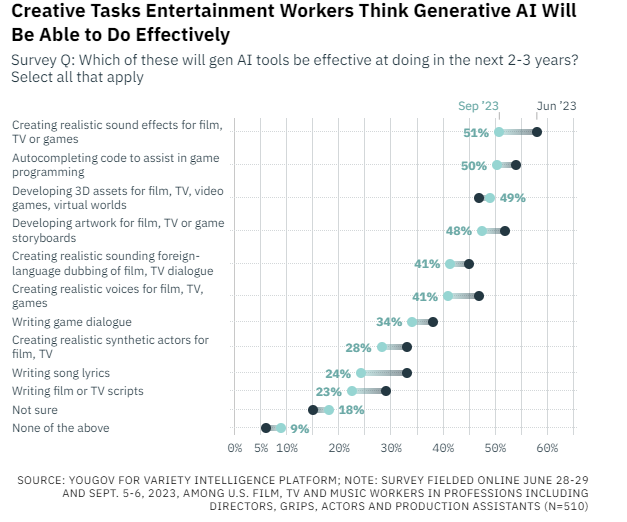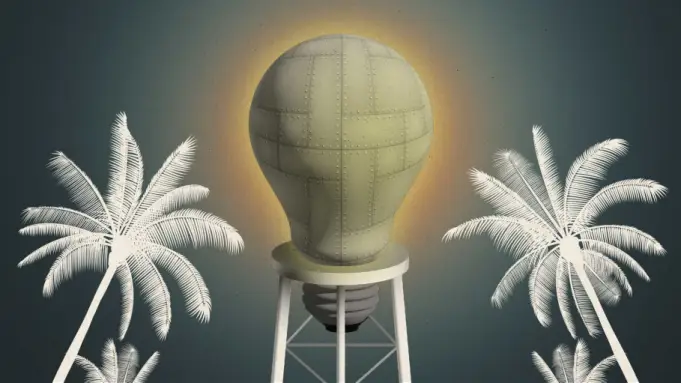Navigating the Future: How Writers and Studios Can Utilize AI in Script Development Post-WGA Agreement
The WGA’s landmark agreement with the AMPTP in October 2023 marked a significant win for union writers, establishing restrictions on the use of generative AI in creating literary or source material. This safeguard prevents writers from losing compensation or credits due to the implementation of such technology. However, AI isn’t entirely off-limits for writers and studios in the script development process.
With the union contract settled, the focus shifts to how writers and studios can realistically leverage AI tools for scriptwriting in 2024. This year is poised to see experimentation with artificial intelligence to assess the capabilities of large language models and explore best practices for their integration into the screenwriting workflow.
Moreover, the industry awaits more clarity on copyright law to delineate permissible use, with new guidelines expected to emerge fully in 2024. Ongoing copyright lawsuits, such as The New York Times against OpenAI, contribute to the evolving legal landscape.
A crucial aspect for writers and studios to consider is that entirely AI-generated works currently lack copyright protection. Even if large language models (LLMs) demonstrate the potential to produce production-ready scripts, human writers must contribute creatively. The U.S. Copyright Office, in alignment with international copyright law, has yet to define the threshold of human authorship needed for legal protection.
Conversely, the question remains unanswered in the courts as to whether outputs generated by LLMs infringe on copyright. While lawsuits so far have targeted AI companies rather than users or companies utilizing these models, the potential exists for content companies or creators to face liability.
While chatbots like ChatGPT can simulate screenplay-style output, the notion that AI can independently create a comprehensive, coherent, and production-ready script without human assistance appears less plausible. According to a recent YouGov/Variety Intelligence Platform survey, only 18% of U.S. entertainment workers believe that generative AI will effectively write film and TV scripts within the next two to three years, indicating skepticism about the creative capabilities of gen AI.
Creative Tasks Entertainment Workers Think Generative AI Will Be Able to Do Effectively
Survey Q: Which of these will gen AI tools be effective at doing in the next 2-3 years? Select all that apply

Unlocking the Potential of Large Language Models (LLMs) in Script Development Post-WGA Agreement
While Large Language Models (LLMs) excel in various text generation tasks like conversation, question-answering, coding, summarization, translation, and ideation, their ability to generate coherent, long-form stories presents unique challenges. Issues such as token limits, stylistic constraints, and potential biases derived from training data need consideration.
Token limits, representing a few characters, hinder LLMs in producing feature-length screenplays in response to a single prompt. Stylistically, anecdotal reports suggest that efforts to prompt ChatGPT for scriptwriting result in generic outcomes. Research endeavors aim to distinguish between human and AI writing, shedding light on characteristic differences and assessing the drawbacks or usefulness of AI in comparison.
Immediate concerns for writers involve potential plagiarism and the reproduction of biases by language models. Uneven non-English-language representation in model training may disadvantage certain languages. However, the tendency of LLMs to hallucinate, a commonly criticized aspect, may pose minimal risks for projects not requiring factual accuracy.
While fully automating script development is unlikely, LLM-based tools can energize the process. Writers may leverage them for world-building, exploring alternative storylines, and generating ideas. LLMs could serve as muses, brainstorming aids, or sounding boards in early draft stages, facilitating rapid ideation and iteration of story concepts, character details, and plot points. Studios might experiment with LLMs for ideation, generating basic concepts for pilots and movies, and could explore training AI models with proprietary scripts to replicate particular styles or structures.
Despite the possibilities opened by the WGA contract, uncertainties persist, especially in copyright law. Studios may test internal experiments to assess LLM capabilities and define potential use methods. While AI-written movies might not materialize soon, the evolving landscape prompts exploration of AI tools in the creative realm.

